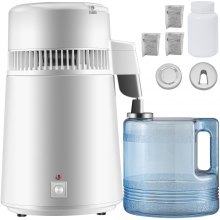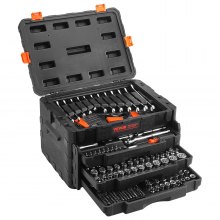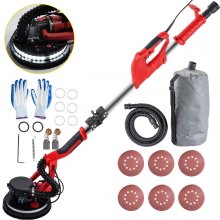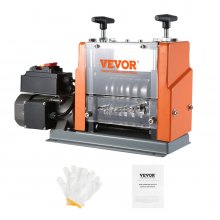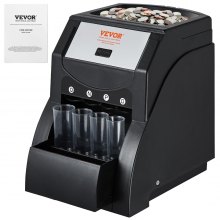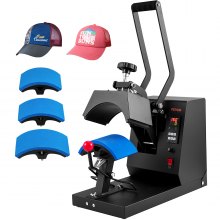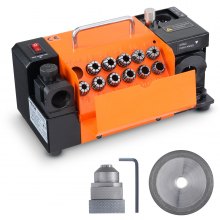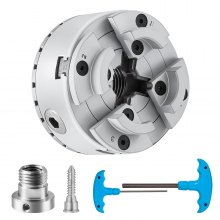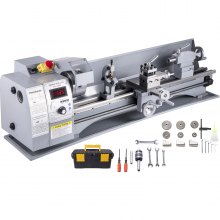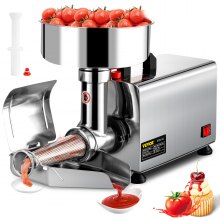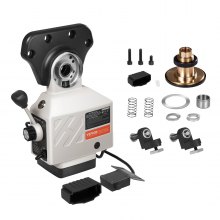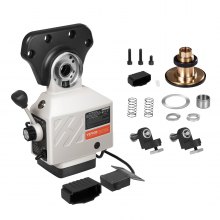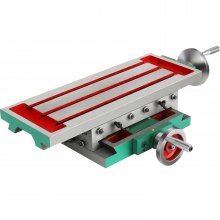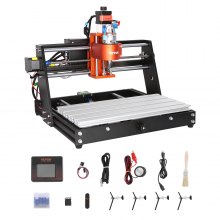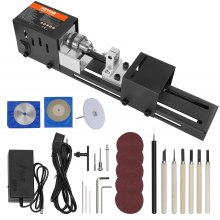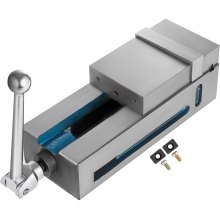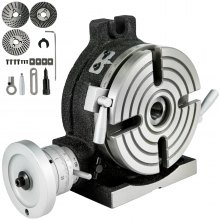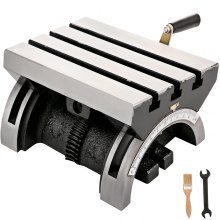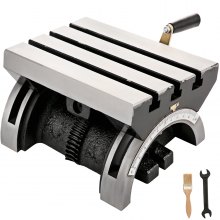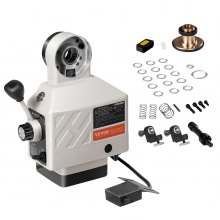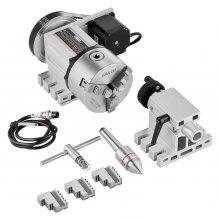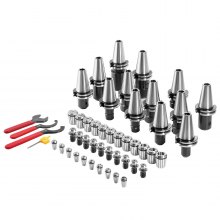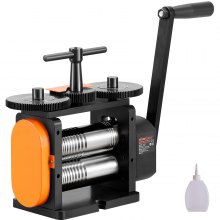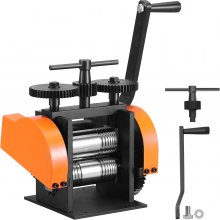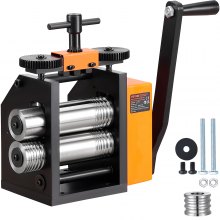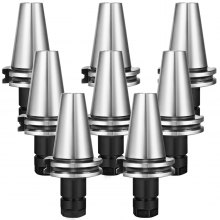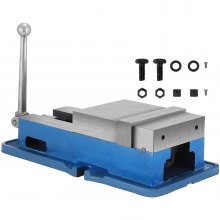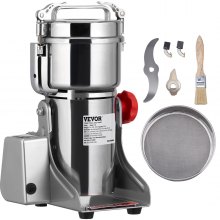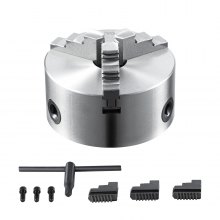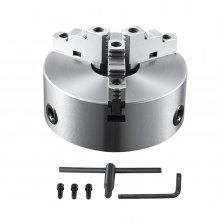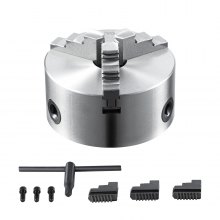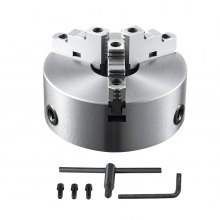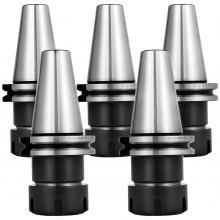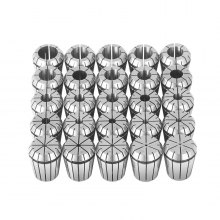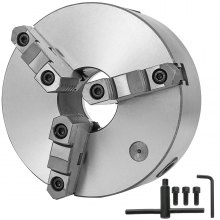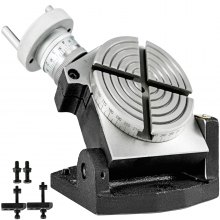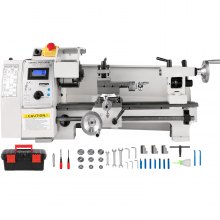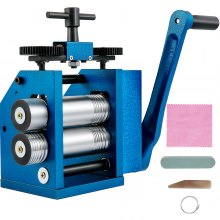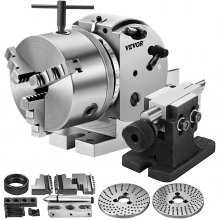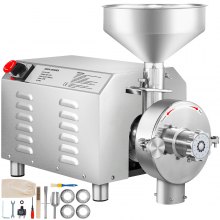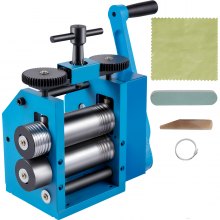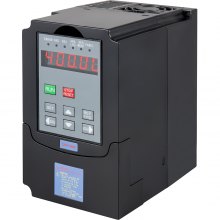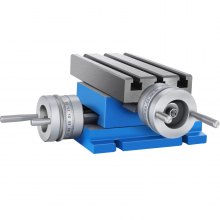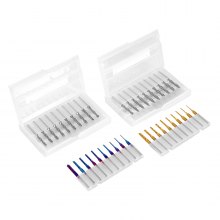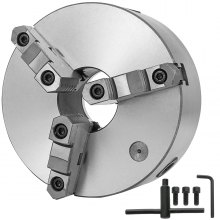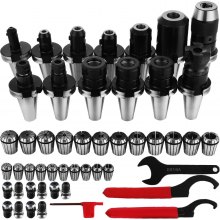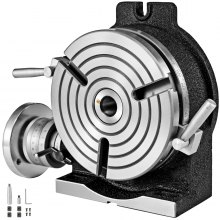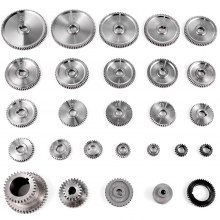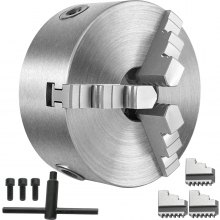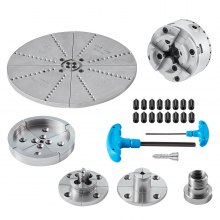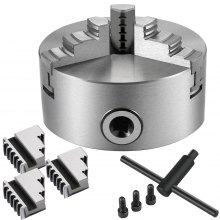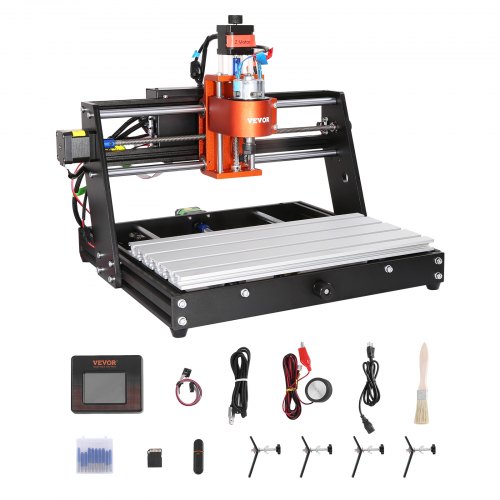Experience Premium Milling Machines from VEVOR
VEVOR's premium milling machines are your perfect companion for making delicious sauces. They feature a powerful pure copper motor, which ensures quick and noiseless jam extraction. The innovative juice-waste separation technology provides an easier experience without the need for secondary filtration. These machines have advanced reverse functions to handle blockages efficiently. With a spacious inlet and practical design, feeding ingredients and cleaning are straightforward and hassle-free. Enjoy the perfect blend of efficiency and quality with VEVOR millers designed for professional chefs and food lovers.
Benefits of VEVOR Milling Machines for Sauce Makers
Unmatched Features and Functionality
VEVOR milling machines are equipped with powerful pure copper motors, ensuring quick jam extraction. The dual-channel design separates juice from waste seamlessly, eliminating secondary filtration. Advanced reverse functions solve blockages, improving efficiency. No matter whether it's tomatoes or berries, these machines make smooth, tasty jams. The spacious inlet allows more ingredients at once. Cleaning is easy thanks to the simple maintenance design.
Various Categories Available
VEVOR offers different models to suit various needs. The 400w model is perfect for small businesses. For higher demands, the 700w version provides extra power. Both versions have the same quality and efficiency. They are ideal for professional chefs, commercial kitchens, and home enthusiasts. Adjustable speed control offers versatility. You can find the model that best fits your requirements easily.
Ideal Scenarios for Use
These milling machines are ideal for Italian restaurants, small businesses, and catering companies. They excel in food preparation scenarios requiring high efficiency. They are also suitable for home kitchens because they allow you to make family-sized portions of any sauce. The noiseless operation ensures a calm environment. You can trust these machines for both small and large quantities of food. They blend well into any setting, offering durability and reliability.
Choosing the Right Milling Machine for Your Needs
The 400w model is ideal for smaller batches. It offers the same quality with less power consumption. The 700w model suits high-demand settings. It's great for commercial kitchens where efficiency matters.
If versatility is important, the 700w model has three-speed control. It allows different grinding speeds for various ingredients.
VEVOR machines fit perfectly into any kitchen space without compromising on performance.
Why VEVOR Is the Preferred Choice
VEVOR milling machines include pure copper motors, providing quick and efficient jam extraction. The dual-channel design seamlessly separates juice from waste, eliminating the need for secondary filtration. With the added reverse function, these machines effectively resolve blockages, ensuring uninterrupted jam making. Their spacious inlet allows for a larger quantity of ingredients, while easy maintenance keeps cleaning hassle-free.
Different VEVOR models are available to meet various needs. The 400w model excels in small-scale applications, while the 700w version offers enhanced power for higher demands. Both models maintain high quality and efficiency, with adjustable speed control for versatile use. These machines are suitable for professional chefs, commercial kitchens, and even home enthusiasts. Choosing the right model for your needs is easy.
They are perfect for ideal usage scenarios, such as Italian restaurants, small businesses, and catering companies, where they excel in high-efficiency food preparation. Home kitchens allow the production of family-sized sauce portions. The machines operate quietly, ensuring a peaceful environment. They're reliable for both small and large quantities, making them suitable for any setting.
Real User Voices
Many are thrilled with the performance of VEVOR milling machines. There are praises for their efficient jam extraction and ease of cleaning, even for large amounts. The noiseless operation is a welcome feature, providing an enjoyable experience, especially during long preparation hours. Dual-channel design which separates juice from waste has been highlighted as incredibly convenient.
The versatility of VEVOR's models is another source of satisfaction. People have recognized the value of adjustable speed control in the 700w model, as it accommodates various ingredients. The machines have proven to be durable, performing consistently over time without any significant issues. Ease of storage and the option to handle different volumes make VEVOR a go-to choice.
From the powerful motors to the user-friendly design, many noted that VEVOR machines fit seamlessly into their kitchens, whether commercial or home-based. The machines' reliability in tackling blockages with the reverse function has been a major time-saver. There is consensus on the machines being an intrepid investment for efficient, high-quality jam production.
FAQ
1. How Does the Reverse Function Work?
The reverse function helps resolve blockages. Simply activate it when needed. It ensures smooth operation especially during large batches.
2. How Do I Clean the Machine?
VEVOR milling machines are easy to clean. Disassemble the parts and rinse under running water. The design supports straightforward maintenance.
3. Is the Machine Noisy?
VEVOR machines are designed to reduce noise. The pure copper motor lowers operational noise levels. Enjoy a quieter, more pleasant experience.
4. Can It Handle Different Fruit Types?
VEVOR milling machines are versatile. They work efficiently on a variety of fruits like tomatoes, strawberries, and blueberries. The models ensure smooth, consistent output.
Conclusion
When choosing VEVOR milling machines, you can ensure efficient, versatile, and reliable jam production. Their powerful motors, dual-channel design, and user-friendly features make them ideal for both commercial and home use. Available in various models to suit different needs, these machines offer seamless operation, ease of use, and quiet performance. The robust build ensures longevity, making them a valuable addition to any kitchen. VEVOR millers stand out for their efficiency and consistent quality, offering a hassle-free, enjoyable jam-making process tailored to meet diverse preparation requirements.



























